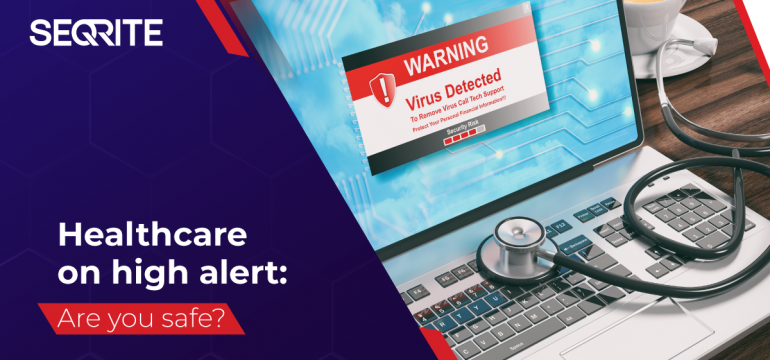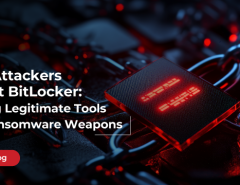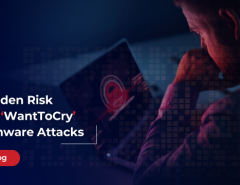The world of healthcare is rapidly changing. Technological advancements expose organizations to cyber risks, including ransomware, malware, breaches, viruses, and vulnerabilities. The combination of poor cybersecurity practices, digital transformation in care delivery, operational touchpoints, and sensitive data storage makes the healthcare industry a prime target for cybercriminals.
While there is no doubt that healthcare service providers and our government are continuously strengthening the cyberattack prevention mechanisms, Lok Sabha data still reported over 3 million cases of cyberattacks from 2019 till June 2022. Quick Heal’s Malware Analysis Lab also detected 2.74 Million threats in 2022 alone. The healthcare domain saw 1,866 cyberattacks per week on average from a total of 41,181 unique IP addresses.
Cybersecurity Crisis in Healthcare: Why the Alarming Surge in Cyberattacks on eInfra is Keeping Experts on High Alert!
Cyberattacks on healthcare have significantly increased since the COVID-19 pandemic. A cyberattack on healthcare is more than an attack on computers. It is an attack on vulnerable people, their medical history, personal details, and also the people who are involved in their care.
Cyberattacks come in many forms, from ransomware to theft of personal information. The impact of an attack can vary depending on the size of the facility.
Four issues are common throughout healthcare: patient data privacy protection, the vulnerabilities of legacy systems, and varied other challenges, including complying with regulations, integration with insurance companies, security breaches, and more.
Hackers access private patient data and may steal, encrypt or alter it, thus severely affecting patient health care and their recovery. The recent attack on India’s top government-run hospital, All India Institute of Medical Sciences (AIIMS), underlines the gaps that still need to be filled. In many cases, the security measures adopted by institutes and organizations are inadequate or have holes in providing holistic protection against ever-evolving threats.
Regarding cybersecurity in healthcare, it is essential to have a robust solution and keep the software updated. In addition, employees need to be educated about how their seemingly small actions can make or break an organization’s cybersecurity infrastructure. Plus, having regular audits and stringent policies go a long way in preventing any cyberattacks.
When everything is open, distributed, and connected, security and business resilience require more than what traditional cybersecurity approaches offer. Healthcare service providers, hospitals, and other organizations need a more focused security resilience strategy that centers on detecting, responding to, and mitigating complex threats.
Holistic Security Approach for a New connected world
Today, hospitals are spread across the geographies, nationally and some even globally. The hospitals need a unified system to manage data and technology operations centrally. Hospitals focus more on deploying intelligent platforms and integrating various devices and types of machinery for better care delivery.
As organizations become more connected, visibility and actionable insights across networks, clouds, endpoints, and applications are becoming more critical to align digital needs with the desired security posture of the business.
To protect critical patient data and clinical systems, healthcare IT leaders should adopt Endpoint Security Solutions, Zero Trust security frameworks, and extended Detection and Response (XDR) solutions to bolster cybersecurity defenses. Seqrite’s solutions enable CISOs and CIOs worldwide to protect their institutions amidst unpredictable change while ensuring business continuity and driving security resilience and readiness.
Takeaway
The risk of doing nothing is not an option now. To overcome healthcare cybersecurity challenges, organizations and institutes need to focus more on safeguarding their data by investing more in technological innovation and adopting holistic cybersecurity measures.
Healthcare is an ever-growing sector, and technology has undoubtedly solved significant challenges. Steps like integrating security into medical devices, safety in the development and deployment of applications, data-centric security approaches, spreading awareness and training on cybersecurity measures, regular assessment of threats and sharing information to mitigate them, and setting up competent security operations could help the sector create a shield and to minimize the impact of cyber threats.
As you reflect on the security of your healthcare organization or business, it’s essential to consider the most critical risks of today. Are you confident that your cyber strategy is aligned with your business strategy? Seqrite’s comprehensive enterprise security portfolio offers advanced and integrated solutions that can provide unparalleled protection for the integrity of your business. Together, we can collaborate to develop a strategy tailored to address the specific security needs of your organization, ensuring a secure and robust environment.




